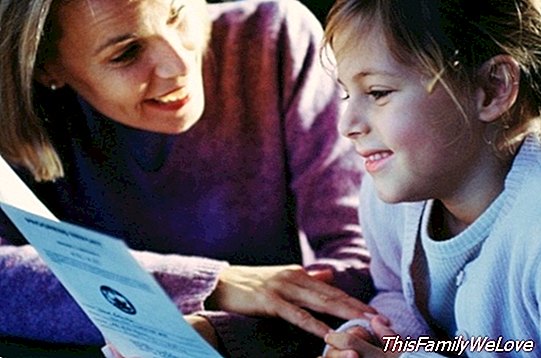How to stop the superiority complex of prepotent children

According to specialists, children become overbearing for two diametrically different reasons: one due to a manifest affective lack, mainly by parents; and the other, by a misunderstood love, characterized by indulging all their whims, bad performances and educating them in a misunderstood competitiveness, making them believe that they are the best in everything and that in life one is someone the more material successes they achieve.
Reasons that make children arrogant and arrogant
1. The lack of affection
The first reason is based on the outstanding American psychiatrist Elizabeth Berger. In his opinion, the frustration caused in the early childhood of the child, who felt left out or not loved by his parents, is at the base of a prepotent behavior.
According to Berger, the arrogance of these children is like a psychological defense against a wound or loss in the first relationships of love. With the passage of time and after many disappointments, the child becomes himself as the only person on whom he can depend. Loneliness and envy stimulate the arrogant attitude.
The psychiatrist points out that they are children who spend a lot of time at home without the company of their parents, especially on weekends and in compensation, they fill them with expensive gifts. They act as if they are superior to others, for not feeling recognized in their own wealth.
2. You have to be the best
The other side that causes arrogant children is to educate them in competitiveness and success at all costs: "Son, you have to be the best, you only have to be worth in life." Parents also tend to fall into arrogant actions, something that will serve as an "example" for the child. Paradoxically, this way of educating can cause the opposite effect in the child, since in the face of frustrations and failures, they can come down instead of becoming arrogant.
Pills to curb the superiority complex of prepotent children
- Help him discover what he can learn from others.
- Teach him to become self-critical: wrong is good, ask for forgiveness too. Accept a criticism with good humor.
- Look in the mirror with a superior face: the image is ugly!
- Know how to listen and be interested in what others say, without wanting to give their own opinion.
- Laugh with others, not others.
- Doing things for others, without seeking praise.
- Ask for help from others. It is not a symptom of inferiority.
- Knowing how to give in and if what the other proposes fails, do not lash out at him saying: "You see, if I told you so".
- Do not always be aware of your own image and be more aware of the image of others.
- Do not always set an example when you want to give advice.
If you think your child has arrogant and arrogant actions, think about what may be the cause: for lack of affection or to educate him in what has to be the best. Thus, you can act by spending more time with him, embracing him more or better, putting into practice some of the recommended pills against the superiority complex.
Educate children in humility
Arrogance and arrogance arise if you do not educate yourself in humility. Recognizing failures, weaknesses and mistakes is not a symptom of inferiority, but quite the opposite: we become great before others. Alfonso Aguiló, in his book Educar el carácter, from Ediciones Palabra, states that humility should not be confused with something as simple and ridiculous as having a bad opinion about one's own talents. Humility is not to be exalted or underestimated, but is linked to truth and naturalness. Humility is accepting that sometimes we do things wrong and nothing happens.
Marta Santín
Advice: Javier Urra.Writer. First Defender of the Minor. Clinical and Forensic Psychologist. Patron of UNICEF. College professor.
More information in the book:
Educate the character, of Alfonso Aguiló. Ediciones Word.
You may also like:
- The arrogant, the superiority complex of children
- The effects of excessive gifts on children
- Humility, marginal virtue?
- Opinion. The overbearing child




